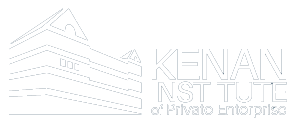Built2Last: A Roadmap for Inclusive and Equitable Development in Durham
Report Commissioned by the City of Durham’s Office of Economic and Workforce Development
Written by James H. Johnson Jr., Ph.D
Mark S. McDaniel, MCRP
Allan M. Parnel Vice President, Cedar Grove Institute for Sustainable Communities Mebane, NC
April 2019
EXECUTIVE SUMMARY
A roadmap for inclusive and equitable development is proposed which has four core elements that will lead to greater shared prosperity in Durham: a sustainability scorecard; a collective ambition community mobilization strategy; a more inclusive entrepreneurial/ business ecosystem; and an equitable community economic development innovations fund. These activities aim to support historically underutilized businesses and invest in workforce development partnerships that support working poor civil servants at-risk of being priced out of and displaced from Durham’s housing market. Utilizing these tools and leveraging the four corners of intellectual assets that exist at Duke University, University of North Carolina at Chapel Hill, North Carolina State University, and North Carolina Central University should strategically position Durham to be one of the most inclusive, equitable, and sustainable cities in America.
To continue reading, dowload the .pdf above, or click here.
About the Authors
James H. Johnson, Jr. is the William Rand Kenan, Jr. Distinguished Professor of Strategy and Entrepreneurship in the Kenan-Flagler Business School and Director of the Urban Investment Strategies Center in the Frank Hawkins Kenan Institute of Private Enterprise at UNC-Chapel Hill.
Mark S. McDaniel has a Masters in City and Regional Planning.
Allan M. Parnell is a Senior Research in the Kenan Institute’s Urban Investment Strategies Center and Vice President of the Mebane, NC-based Cedar Grove Institute for Sustainable Communities.
The Kenan Institute serves as a national center for scholarly research, joint exploration of issues, and course development with the principal theme of preservation, encouragement, and understanding of private enterprise.
Related Articles
Is North Carolina’s Attractiveness as a Migration Destination Waning?
Is North Carolina’s Attractiveness as a Migration Destination Waning?We are witnessing a re-balancing after the COVID migration surge or a fundamental shift in North Carolina’s attractiveness as a domestic and international migration magnet.White Paper by James H....
North Carolina at a Demographic Crossroad: Loss of Lives and the Impact
North Carolina at a Demographic Crossroad:Loss of Lives and the ImpactNorth Carolina’s phenomenal migration-driven population growth masks a troubling trend: high rates of death and dying prematurely which, left unchecked, can potentially derail the state’s economic...
WILL HURRICANE IAN TRIGGER CLIMATE REFUGEE MIGRATION FROM FLORIDA
Will Hurricane Ian Trigger Climate Refugee Migration from Florida?Thirteen of Florida’s counties were declared eligible for federal disaster relief following Hurricane Ian’s disastrous trek through the state (The White House, 2022). The human toll and economic impact...








